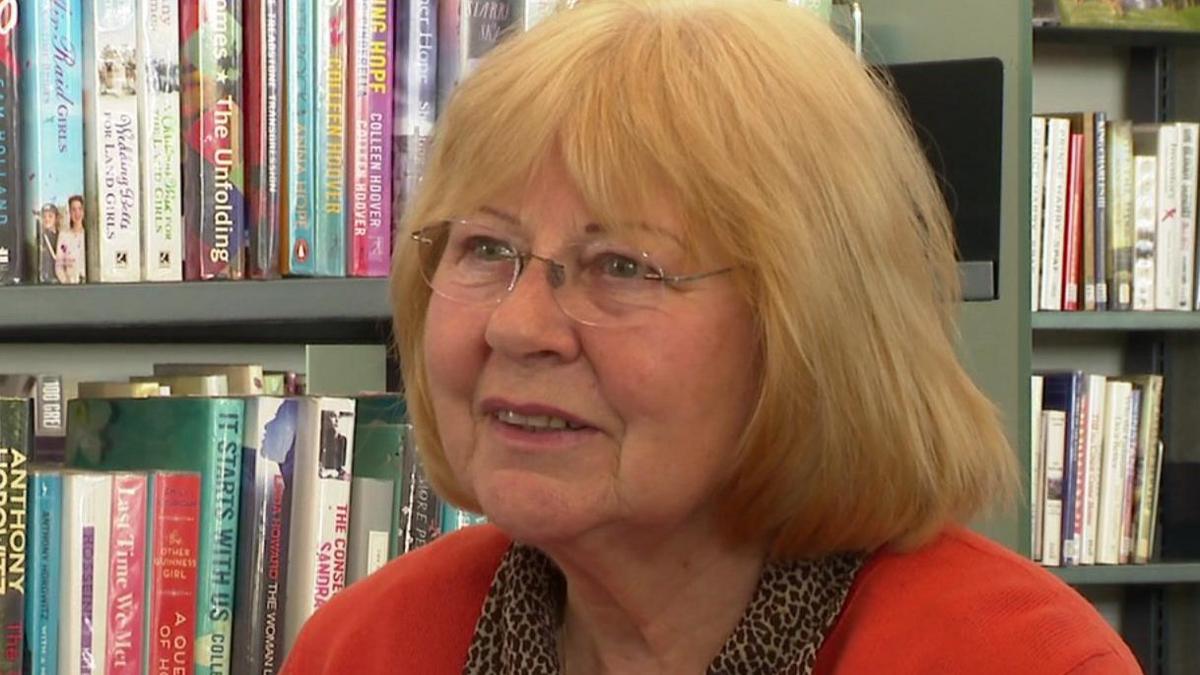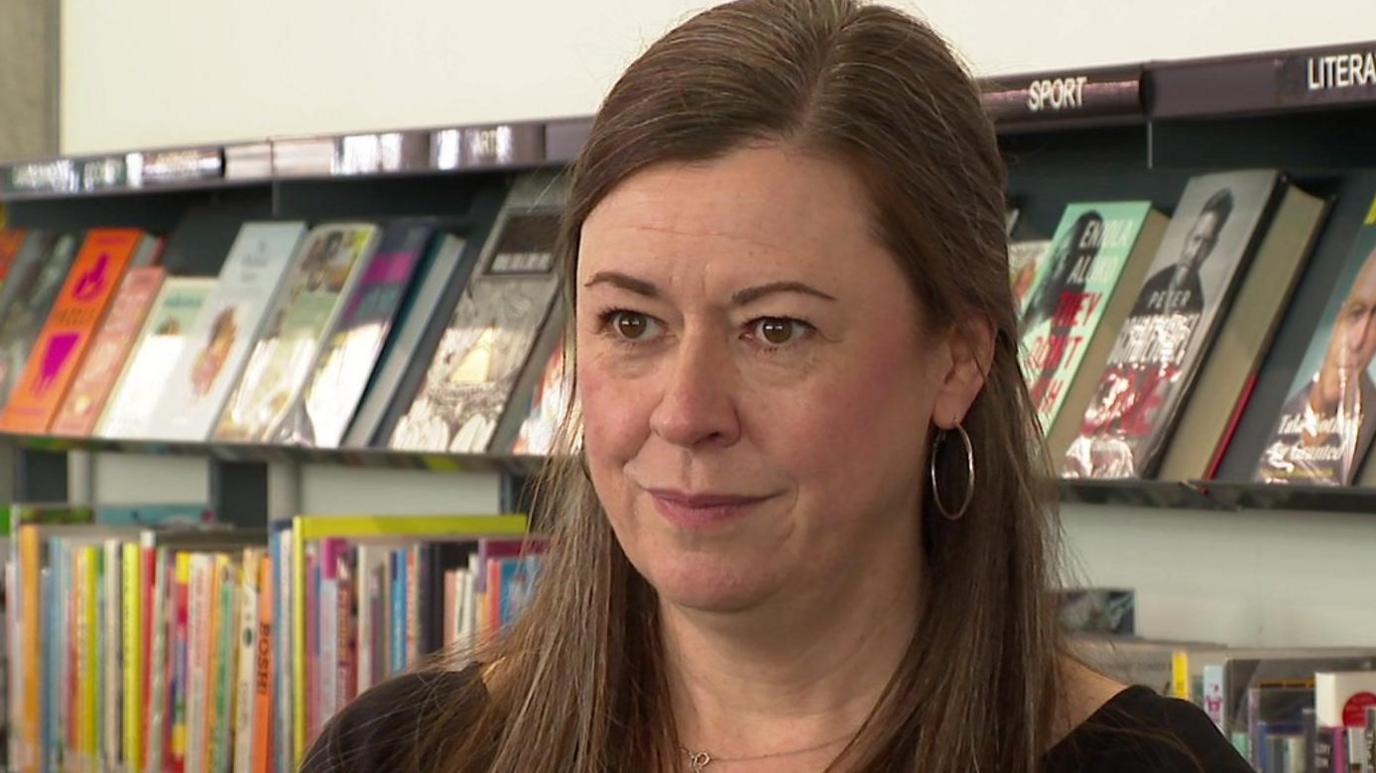Woman's 30-year cough 'caused broken ribs, pain and heartache'

Mrs Naughton said the condition was "very tiring"
- Published
A woman who has had a chronic cough for 30 years said it has been like dealing with “an alien who has invaded my body”.
Joan Naughton said people often reacted “unkindly” to her condition, which medical experts said affected about 10% of the UK's population.
The 73-year-old, from Stockport in Greater Manchester, said her coughing had led to broken ribs and left her often feeling so embarrassed, she wanted "the ground to open up and swallow me".
Prof Jacky Smith, who has treated Mrs Naughton, said having the condition "really impacts people's quality of life" and the public needed to show more understanding to those dealing with it.
The NHS defines a chronic cough as a "persistent cough lasting eight weeks or more", which can be triggered by "talking, laughing, certain strong smells and changes in temperature".
It said it can due to acid reflux, excess mucus in the throat, a cold or chest infection or a reaction to medication, but in some cases, there was "no obvious cause".
It added that that a chronic cough can lead to "poor sleep, headaches, disordered breathing, exhaustion, depression, stress incontinence and fear of being out in public".
'Really ruins things'
Mrs Naughton said the condition was "very tiring".
"My husband calls it the ‘machine gun cough’ because it's rapid and continues for longer than you would like," she said.
"You can pull your back from coughing too much and I have broken ribs in the past."
She said it caused her "a lot of heartache" in public and had become even harder to deal with in recent times.
"Since Covid, it's much worse because people assume I'm contagious and that I'm going to pass some dreadful disease on to them," she said.
“It's very, very embarrassing and causes me a lot of heartache when I'm in public."

She said on one occasion, she had suffered a coughing fit at a classical music concert which was so bad, the conductor made a point of mentioning it after the interval.
"We made our way back in for the second half and when we sat down, the conductor said 'before we start, let's all settle down and stop coughing', which I felt was directed at me.
"And then he started the second half, which I continued to cough the whole way through.
"So now, I have quite a dislike for any Debussy music, based on that experience."
Prof Jacky Smith said there needed to be greater awareness of the condition, as it affected "one in 10 people, so it's really common".
"In a lot of people, treating [the causes] will make the cough go away, but it's really a problem when those treatments don't work and it becomes a chronic cough," she said.
"In that situation, it can be there for years and it really ruins people's lives."
She said it "really impacts people's quality of life".
"It really ruins things like going to weddings, funerals, going to the cinema - anywhere where people have got to be quiet."
She said women were more likely to be affected than men and "commonly starts in people between 50 and 70 years of age" and there was "a lot more work" to be done to find out the reasons why it happened, but there were treatments were “on the horizon".
Until those were available though, she said she wanted the general public to be more tolerant.
"People need to understand that chronic coughing isn't necessarily Covid or something that's catching, and try to be a bit kinder," she said.
Listen to the best of BBC Radio Manchester on Sounds and follow BBC Manchester on Facebook, external, X, external, and Instagram, external. You can also send story ideas to northwest.newsonline@bbc.co.uk, external